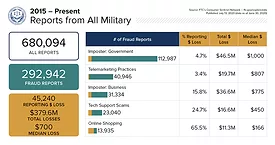Home » fraud prevention
Articles Tagged with ''fraud prevention''
Heightened fraud and cyber risks threaten e-commerce merchants
Online merchants should be asking themselves three key questions related to their fraud defenses.
July 28, 2020
Sign-up to receive top management & result-driven techniques in the industry.
Join over 20,000+ industry leaders who receive our premium content.
SIGN UP TODAY!Copyright ©2026. All Rights Reserved BNP Media.
Design, CMS, Hosting & Web Development :: ePublishing








